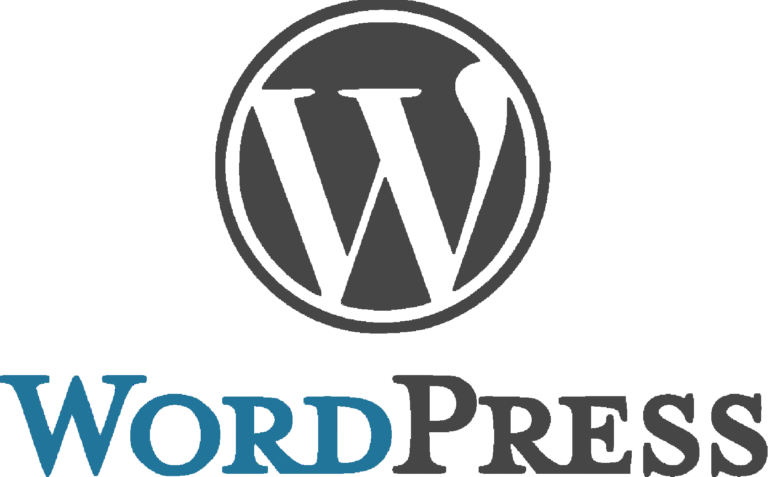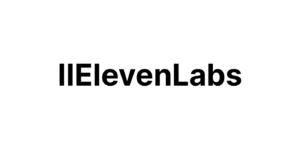10 Best WordPress alternatives in 2024

WordPress is the most popular content management system on the planet, with about a 60% market share of known website platforms and 40% of overall sites.
WordPress is great for its ease of use, extensibility, and powerful ecosystem. Still, it cannot be everything for everyone.
Your new project might demand something different, or you could just want to test the waters and see what else is out there.
Fortunately, there are many competing content management systems out there. So, we will take a closer look below to see which might be the best for your website.
Top WordPress alternatives
| Name | Best for | Price | Language | Website |
|---|---|---|---|---|
| Joomla | General purpose | Free | PHP | joomla.org |
| Weebly | Beginners | Freemium | N/A | weebly.com |
| Drupal | General purpose, advanced users | Free | PHP | drupal.org |
| Ghost | CMS, blogs | Free, paid | Node.js | ghost.org |
| Medium | Blogs, writers | Free | N/A | medium.com |
| Movable Type | General publishing | Free, paid | PHP, Perl | movabletype.com |
| Wix | Blog, design freedom | Freemium | N/A | wix.com |
| Shopify | E-commerce | $29/m | N/A | shopify.com |
| Contentful | Headless CMS | Freemium | N/A | contentful.com |
| Hubpages | Hosted, blogging | Free | N/A | hubpages.com |
1. Joomla
Running over 2 million websites, holding 6% of the CMS market, and powering over 9% of known business websites, Joomla is also free and open source.
The system is flexible, easy to extend and customize, beginner-friendly, and available in 76 languages. If you want to create a unique website and don’t know where to start, then try Joomla.
Over 1,500 volunteers have added 10,000+ extensions and templates to the Joomla project. So, it is easy for you to find anything you are looking for. They range from image features to social web, news, style, management, e-commerce, marketing, financial, games, and so on.
Companies of all sizes also use the platform to create multi-lingual sites that are mobile and search-engine friendly. Some even feature multi-user permission levels.
Joomla has been downloaded over 121,000,000 times since 2005 and is currently in version 3 stable. You will have to install and host it on your own though. But Joomla features a large and vibrant community, willing to help you at any point in your journey.
Pros: Beginner friendly, extensible, flexible, free
Cons: Needs hosting
Website: joomla.org
2. Weebly
For those who need a quick and simple website with a free editor and domain host, Weebly is an attractive option.
It lets you create a personal or e-commerce site quickly and without coding HTML or any other stuff. This makes it easy to get your message across or offer your products to the world.
Weebly runs a freemium model. So, there is a free tier for beginners, with a web address on the Weebly domain.
Starting from $5 per month though, you can attach a custom domain, and from $12 per month, you can remove Weebly’s ads and integrate a shopping cart with online payment options.
Pros: Free site, free hosting, free editor, beginner-friendly
Cons: Extras cost a fee
Website: weebly.com
3. Drupal
Site developers with experience will appreciate what Drupal offers. The open-source platform celebrates its 20th birthday this April as a back-end for all types of websites.
These sites range from personal blogs to corporate and government portals, including 12% of the world’s top 10,000 websites.
Security and access control is a big feature of the Drupal platform. It is written in PHP and comes with over 46,000 modules and roughly 3,000 themes, all for free.
The only downside is that Drupal is not as beginner-friendly as Joomla. But if you know your PHP and framework development philosophies, then you should love Drupal. You will also appreciate it when security is a top priority.
Pros: General purpose CMS, advanced features, top security
Cons: Not for beginners
Website: drupal.org
4. Ghost
Ghost is a top WordPress alternative. It comes with all the great features you can expect for blogging purposes.
The package is free and open-source software that you can download and host by yourself, just as with WordPress.org. But it also has a hosted version, as you would find on the WordPress.com site.
But where WordPress runs on PHP, Ghost runs on Node.js, the JavaScript framework and run-time engine behind the Jamstack movement. Ghost also offers headless CMS functionality, so you can use it with your favorite static site generators, apps, API setups, and so on.
The fully-managed hosted blogs come with automatic updates and backups, but they come at a price. There is no free plan as with WordPress. Its plans start at $9 per month, but they come with many benefits.
Pros: Super fast, user-friendly, modern headless CMS
Cons: No free hosted plan
Website: ghost.org
5. Medium
Launched in August 2012, Medium is an online blogging and publishing platform, providing exposure and possible earnings for writers.
First, the site provides sub-domains just like WordPress.com for any writer for free. You can use this account to publish your posts all by yourself.
Secondly, Medium is also a publisher. So, the site curates content from writers who opt-in to the service. When your content gets curated, Medium offers it to its user base as suggestions.
Some of these users are free, while others pay for premium access. This publishing part is where Medium’s writers get paid from.
For downsides, you cannot customize your sub-domain’s theme like on WordPress. Plus, you cannot use custom domains as well. At least, for now.
Pros: Free sub-domain, earnings, large network
Cons: No customization or unique domain
Website: medium.com
6. Movable Type
Designed specifically for blogging and news sites, Movable Type is proprietary software that is easy to use, works well for teams, and comes with top-grade support.
Movable Type also lets you manage as many sites as you like from the same simple and easy-to-use dashboard.
The package is additionally available as an Amazon machine image, making it easy to deploy on the cloud. You can launch and run it for free on a T1.micro or T2.micro instance on AWS, but keep in mind that it won’t be the latest version.
The latest Movable Type versions cost $0.07 per hour or $499 per year for a single license. And technical support costs an extra $149 per month.
Pros: Professional package, easy to use, team features
Cons: Costly, free version is outdated
Website: movabletype.com
7. Wix
Wix’s offering is very much like Weebly’s – There is a design editor, free hosting, ready-to-use blog templates, domain name, and premium offers.
But while Weebly focuses on ease of use, Wix focuses on design freedom. You can create more custom-designed sites using Wix than you can with Weebly. So, if you have a flair for design, then you might love it.
You can host the site for free, but once you need to attach a custom domain, you will need to pay $4.50 monthly. You will also get 500MB storage, 1GB storage, and 24/7 support.
Higher plans are available as well, such as the $8.50 per month plan, which removes ads and includes a free domain.
Other features include a mobile- and SEO-friendly design, easy database management, AI-aided design, custom fonts, media galleries, and lots of other design features.
Pros: 500+ templates, design freedom, free hosting
Cons: Contains ads
Website: wix.com
8. Shopify
If you are checking out WordPress alternatives for building an online shop, then you need to consider Shopify.
This platform makes it easy to sell stuff online, and includes a drag-and-drop website builder, mobile-friendly design, online payments, and a completely managed and user-friendly store admin.
You also get 70+ professionally designed themes, a blogging platform, custom domain, and analytics.
But Shopify is not free though. Plans start at $29 per month for new sellers and can go all the way to $299 for businesses with larger operations.
Pros: Easy setup, online payments, easy designer
Cons: No free plan
Website: shopify.com
9. Contentful
Contentful is a headless CMS platform. A headless content management system is software that helps in writing and distributing content. But it does not offer a display or HTML rendering mechanism.
If you are planning a complex content strategy then you may want to check out Contentful. You can use it to create as much content and from as many users as you like.
Then, for distribution, you can post to different blogs via API. You can also use the platform to create content for apps, newsletters, static website generators, and to perform other unique functions that your current CMS cannot.
Pros: Complete content flexibility, API based
Cons: Could be complex for some
Website: contentful.com
10. Hubpages
If your desire is simply to write about topics that you care about, then Hubpages might be a good alternative. Unlike WordPress.com though, you do not get a sub-domain on Hubpages. Rather, you are featured as a writer on the platform.
You can also make money using Hubpages as the system lets you select an ad program during registration. And this can translate into earnings down the road.
For downsides, Hubpages does not give you a sub-domain. So there is nothing to customize, no templates to tweak, or features to add.
What you get, however, is a community of passionate writers. You can comment and discuss topics that interest you, and maybe make new friends. Keep in mind that Google cut Hubpages’ rankings in 2011, but the network seems to be innovating.
Pros: Easy to use, hosted platform, easy earnings
Cons: No template control
Website: hubpages.com
Conclusion
Coming to the end of this list of the top WordPress alternatives, you can see that there are many options out there. From headless to general CMS platforms and highly-optimized blogging solutions.
In truth, each system has its unique strengths. So, the best choice for you or your project will depend on your specific needs.





